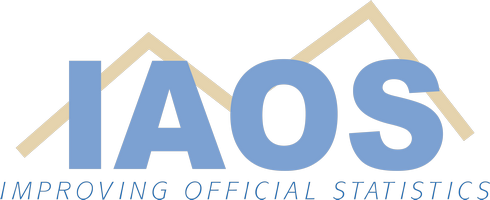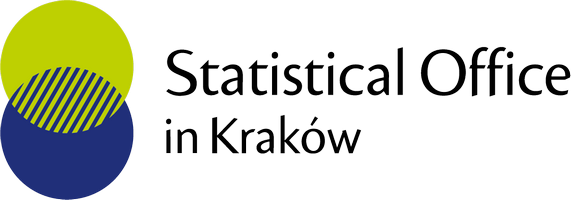| Status | Name | Country/affiliation | Title of the contribution | Brief summary |
|---|---|---|---|---|
| Chair | Tomasz Klimanek | Poland | ||
| Chair | Chigozie Kelechi Acha | Nigeria | ||
| Speaker | Ms. Ibtihaj Alsiyabi | Sultanate of Oman | Towards Achieving SDG6 in the GCC Countries: Lessons Learned from Expo Dubai 2020ries: Lessons Learned from Expo Dubai 2020 | ‘Clean water and sanitation’is one of Sustainable Development Goals by UN to serve as a blueprint to achieve a better and sustainable future for all by2030.Official statistics,through which status of progress is determined and gaps are identified,play a significant role in this domain.Being the hub of successful stories and experiences of countries in sustainability Expo Dubai2020 serves as a showcase and valuable source of water and sanitation related information.This paper examines the statistics of GCC countries in terms of attaining SDG6 and compares them to other chosen countries.Comparisons are conducted regionally and internationally between GCC countries represented by GCCStat and one Arab Country (Algeria) and one Foreign Country(Singapore).Results show that all countries still face challenges in various degrees in attaining SDG6with moderate improvements insufficient to attain the goal.Innovative initiatives and practices showcased in Expo2020 are described as lessons to be learned from for better future performance and attainment of SDG6. |
| Speaker | Dr. Osuolale Peter Popoola | Nigeria | Challenges of Achieving Sustainable Development Goals (SDGs) in Africa in an Uncertain Age | The sustainable development goals(SDGs) are a call for action by all countries to promote prosperity while protecting the planet. However, the world is in an Uncertain Age with various security threats: Terrorism, lack of concrete international frameworks governing cyber-crime, Climate change challenges, civil unrest, environmental pollution, and now the ravaging power of COVID-19 have added to the security threats of our time. These multi-facet security challenges no doubt are increasingly becoming serious threats to the achievement of sustainable development goals. However, with the increasing power of globalization, ICT to connect the world, availability of enormous data (big data) around us, it is more important now than ever to establish the framework for sustainable approaches to mitigate these global security threats in Africa. Hence, this paper examines the objectives of SDGs, Africa's development before 2015, levels of development after, various challenges in achieving SDGs, and highlights the framework for achieving SGDs. |
| Speaker | Dr. Waleed Mohammed | Egypt | Monitoring Migration Indicators at Egypt in the Context of Sustainable Development Goals 2030: Progress and Challenges | Egypt was one of the 193 countries that adopted the 2030 Agenda for Sustainable Development In September 2015, that has included 17 Goals; 169 targets, and 231 indicators; for reshaping national development plans over the next 15 years; for ending poverty, responding to climate change, promoting use of natural resources, and for setting a new Policies for Migration, which can considered it a cross-cutting issue, because it is related to labor, energy, infrastructure, housing ,environment, and also it is essential in achieving the SDG core principle "leave no one behind". Consequently, It is necessary measuring migration in the context of SDGs; to determine challenges such as; data is often not disaggregated by migrant, not comparable, lack of coordination with relevant administrative authorities,and lacking data ecosystem. Based on the above, this paper aims to discuss the current situation of migration indicators in the context of SDGs in Egypt to determine Challenges and opportunities . |
| Speaker | Mr. Hilman Hanivan | Indonesia | Gig Workers in Sumatra : Identification and Assessment on Employment Variables during the Pandemic | Employment data produced by official statistics can be a key solution in bringing back the post-pandemic socio-economic condition. Using labour force survey data in the first semester of 2021, this study aims to identify the characteristics of gig workers in Sumatra, Indonesia and see the changes in employment output variables that they experienced during the pandemic. This study identified the female gig worker group as having a younger concentration of workers and deeper internet penetration based on the analysis conducted. Meanwhile, in both sex groups, gig workers tend to have lower levels of education than non-gig workers. Furthermore, the modelling shows that a gig worker has a greater tendency to experience a decrease in working hours and a decrease in income than a non-gig worker amid a pandemic situation. These findings show that gig workers need extra protection amidst ongoing uncertainties. |



| Cookie | Duration | Description |
|---|---|---|
| cookielawinfo-checkbox-analytics | 11 months | This cookie is set by GDPR Cookie Consent plugin. The cookie is used to store the user consent for the cookies in the category "Analytics". |
| cookielawinfo-checkbox-functional | 11 months | The cookie is set by GDPR cookie consent to record the user consent for the cookies in the category "Functional". |
| cookielawinfo-checkbox-necessary | 11 months | This cookie is set by GDPR Cookie Consent plugin. The cookies is used to store the user consent for the cookies in the category "Necessary". |
| cookielawinfo-checkbox-others | 11 months | This cookie is set by GDPR Cookie Consent plugin. The cookie is used to store the user consent for the cookies in the category "Other. |
| cookielawinfo-checkbox-performance | 11 months | This cookie is set by GDPR Cookie Consent plugin. The cookie is used to store the user consent for the cookies in the category "Performance". |
| viewed_cookie_policy | 11 months | The cookie is set by the GDPR Cookie Consent plugin and is used to store whether or not user has consented to the use of cookies. It does not store any personal data. |